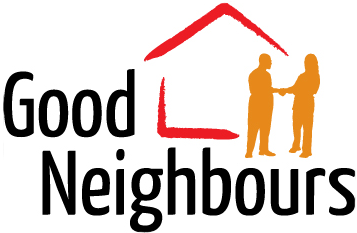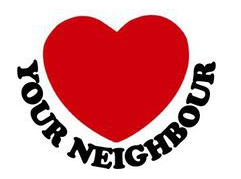Being a good neighbour
Being a good neighbour
We want everyone to live their lives peacefully and get on with their neighbours. Good neighbours are considerate, tolerant and understanding of others and their different lifestyles, and they help build successful communities.
Noise

We take our responsibilities as your landlord very seriously. We will do all we can to help you enjoy where you live. But it is your home and your community, so please look after it as your own.
Being a good neighbour means being reasonable and tolerant of different people’s views and lifestyles and considering how our behaviour affects others. There are lots of things you can do to keep our neighbourhoods clean, safe and happy.
As part of everyday living, and the fact that no home is totally soundproof, we all have to expect some noise from the people living around us. Common everyday living noise includes TV’s and stereos, DIY, dogs barking, intruder or car alarms, slamming doors or simply walking around the property.
• Recognise that your neighbours do not want to hear noise from your home, particularly late at night, or for long periods
• Keep noise (e.g. from the TV, stereo, radio) at a reasonable level at all times of day
• Noise carries through walls, floors and doors. Laminate flooring (particularly in flats), and other hard surfaces, can amplify noise. To help reduce it, put down rugs and fit felt or rubber pads to movable furniture
• Warn your neighbours if you are going to do anything noisy (e.g. having a party or doing DIY)
• Co-operate with your neighbours if they ask you to reduce noise. For example, you can position your TV or stereo away from the walls you share with your neighbours.
• If you are affected by noise then you can contact your local authority and ask them to investigate the problem. If the noise is unreasonable they may decide to take action under the Environmental Protection Act 1990.
Communal areas
You may share communal areas with your neighbours, such as staircases, balconies, corridors, lifts or fire exits.
• Do not block communal areas with prams, bicycles or your other personal belongings
• If you have a communal bin area, dispose of your rubbish correctly in the bins, and make sure the area around the bins is kept tidy
• If you have any bulky household items that you no longer want, your local authority can usually take them away for you (often they provide this service for free)
• If you share a communal door, make sure it’s always kept closed and you don’t let anyone in you don’t know. This way everyone’s homes are kept secure
• Do not allow main entrance doors to slam shut, especially at night, as this is a common source of noise complaint.
Park responsibly and considerately
Unless you have a designated parking bay or driveway, most people like to park their cars on the road outside their own home for convenience. However, due to the volume of cars on the road and limited parking available, it isn’t always possible to park outside your home.
Show consideration and regard to other residents when parking your vehicle.
Recognise that no one has an automatic right to park directly outside their home.
The law allows anyone to park on a public highway as long as the vehicle is taxed and the Highway Code is followed. Do not block entrances, or park at dropped kerbs, or outside garages, or in a way that prevents wheelchair users and prams from using the pavement. Also, do not block access for emergency services.
Different lifestyles and one-off incidents
We are all different and you should respect that other people may not live their lives in the same way as you live yours. 
Often people do not realise they may be disturbing others and are not doing it on purpose. For example, someone vacuuming late at night may not be aware it can be heard by their neighbours and is disturbing them.
• One-off incidents can be annoying at the time, such as a loud party or BBQ. But if they are part of every-day living, and not frequent, then you should try to tolerate it. If they occur on a regular basis, and the disturbance causes you a problem, it is often a matter of making your neighbour aware in a friendly manner and seeking to work out a solution together.
• Try and resolve issues with your neighbours directly first.
Most problems can be resolved by talking to your neighbours. If a neighbour approaches you, treat them with respect.
• Respect your neighbours and their property
Make sure your children and guests are considerate of your neighbours
• Only smoke in permitted areas
Smoking is not allowed in indoor communal areas. If smoking in a permitted area, dispose of cigarette ends safely.
• Bonfires
Bonfire smoke can be a real nuisance. If you must have a bonfire, speak to your neighbours first and arrange a time when they won’t have their washing out, be using their garden or have their windows open.
• Having a barbeque or party? Tell your neighbours first. Your neighbours will be more understanding about noise from a barbeque or party if you have told them about it first and agree an end time. Try and keep noise levels down and ask your guests to park considerately and leave quietly.